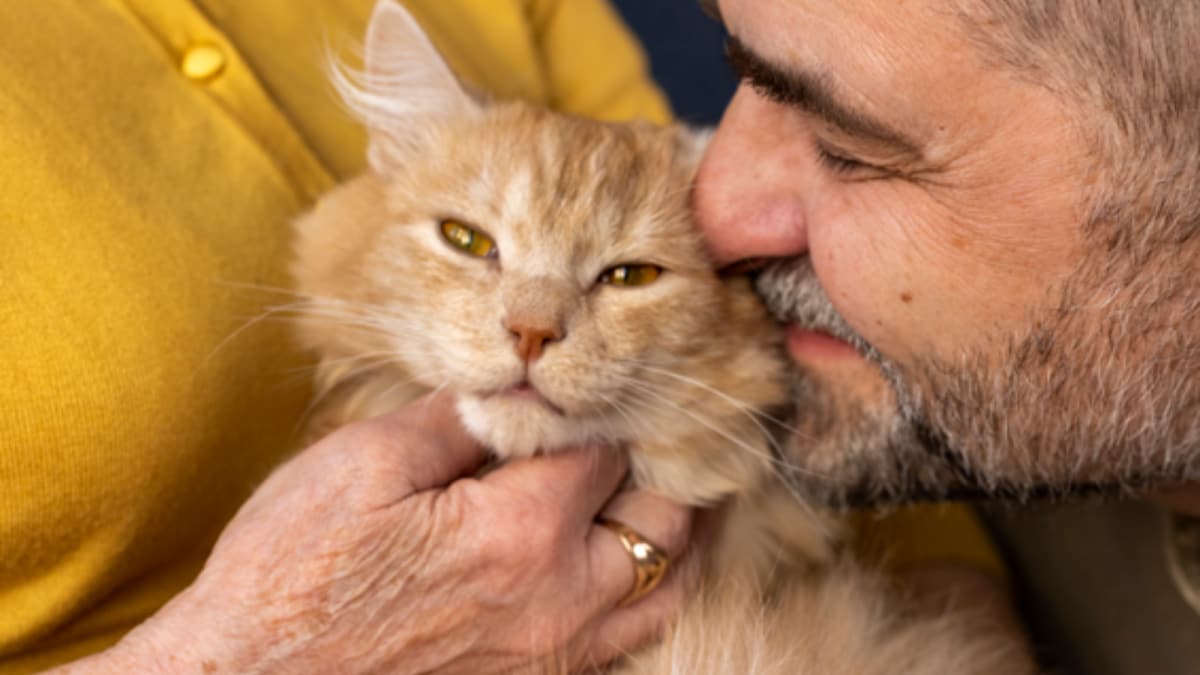Essential Nutrients And Calorie Guidelines For Healthy Kitten Growth

Last Updated:August 10, 2025, 12:10 IST
Nutrition is critical for kittens as they grow and plays a key role in their long-term health

Packaged cat food is an easy and dependable source of fulfilling the nutritional needs of developing kittens and ensuring that they grow healthy without having to rely on homemade diets
Nutrition is essential for all aspects of a cat’s growth, especially during the early life stages. New pet parents must carefully consider the nutritional needs of kittens, which differ from those of adult cats. Proper nutrition in the first two to three weeks is vital for their overall health. A recent study by Mars revealed that 90% of veterinarians believe Indian pets lack proper nutrition, and 91% recommend packaged food for precise calorie management. Understanding your cat’s nutritional and caloric needs is essential for their health and long life.
Dr Umesh Kallahalli, senior veterinarian, MARS Petcare, India shares all you need to know:
Essential nutrients for growth and development
● Newborn kittens require a balanced diet rich in proteins, fats, carbohydrates, vitamins, and minerals to support healthy growth. Proteins are vital for tissue growth and repair, with animal proteins providing essential amino acids like taurine, which supports heart function, vision, and reproduction.
● Fats provide energy and aid the absorption of vitamins A, D, E, and K. Omega-3 and Omega-6 fatty acids promote brain development, skin health, and a shiny coat. DHA (an Omega-3) is crucial for brain and eye development.
● Although less essential, carbohydrates supply energy and assist digestion, especially as kittens transition from milk to solid food.
● Vitamins play a key role in the overall development: Vitamin A supports vision and immunity, D strengthens bones, E protects cells and skin, and K helps with blood clotting.
● Both calcium and phosphorus are essential for strong bones and teeth, with a balanced ratio preventing bone disorders. Minerals like iron support oxygen transport, while magnesium, potassium, and sodium are vital for nerve and muscle function.
Feeding newborn kittens
For the first four weeks of life, kittens rely entirely on their mother’s milk for nutrition. If the mother is unable to nurse, a commercially available kitten milk replacer should be used. These replacers are formulated to mimic the nutritional profile of the mother’s milk.
● Week 1-2: Kittens should be fed every 2-3 hours, including overnight. The feedings should consist of small amounts of milk replacer, administered with a bottle designed for kittens.
● Week 3-4: Feeding frequency can be reduced to every 3-4 hours. At this stage, kittens can start to open their eyes and move around more actively.
The weaning process typically begins around the fourth week of life. This transition should be gradual to allow the kittens to adapt to solid food.
● Week 4-5: Introduce a gruel made of high-quality kitten food mixed with milk replacer or water. Offer this mixture in a shallow dish to encourage the kittens to lap it up. One must continue bottle feeding as necessary.
● Week 6-7: Gradually reduce the amount of milk replacer in the gruel, increasing the proportion of solid food. By the end of this period, kittens should be eating solid food consistently.
● Week 8 and beyond: Kittens should be fully weaned off milk replacer and eating a diet of high-quality kitten food. Ensure the food is specifically formulated for kittens, as it will provide the appropriate nutrient balance for their growing bodies.
Nutrition is critical for kittens as they grow and plays a key role in their long-term health. A proper, balanced, and nutritious diet supports healthy development. Packaged diets that meet global or national pet food standards, such as those set by AAFCO or the NRC, are specifically formulated for cats, offering both convenience for pet parents and confidence in nutrient adequacy.
Packaged cat food is an easy and dependable source of fulfilling the nutritional needs of developing kittens and ensuring that they grow healthy without having to rely on homemade diets. Packaged cat food is an easy and dependable source of fulfilling the nutritional needs of developing kittens and ensuring that they grow healthy without the guesswork of homemade diets.

Swati Chaturvedi, a seasoned media and journalism aficionado with over 10 years of expertise, is not just a storyteller; she’s a weaver of wit and wisdom in the digital landscape. As a key figure in News18 Engl…Read More
Swati Chaturvedi, a seasoned media and journalism aficionado with over 10 years of expertise, is not just a storyteller; she’s a weaver of wit and wisdom in the digital landscape. As a key figure in News18 Engl… Read More
view comments
[title_words_as_hashtags




